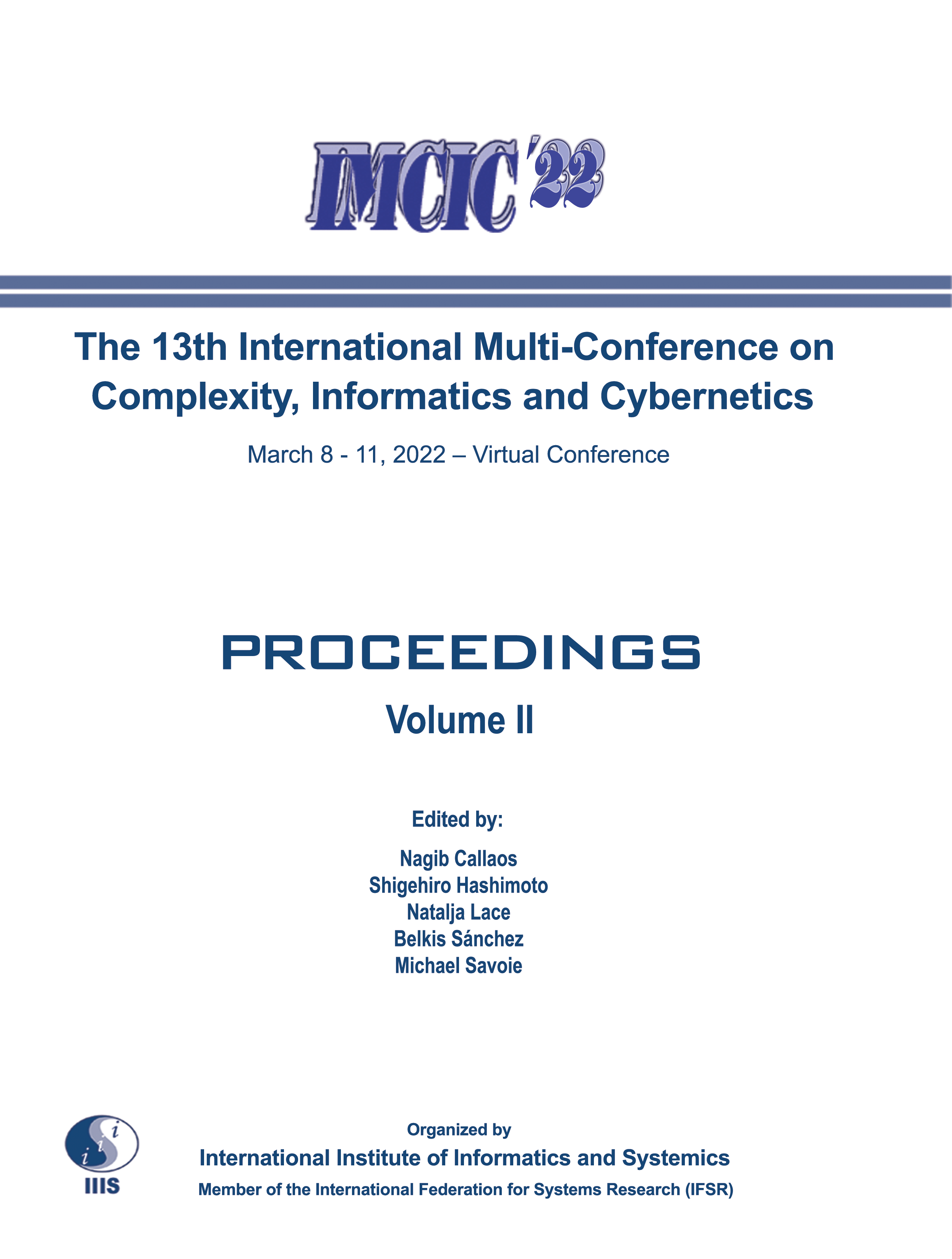2022 Spring Conferences Proceedings

|
Smart Cities, Sustainability, and Quality of Life – A Comparison of Indexes and the Indicators They Include
João Vitor Souza Teixeira, Renata Maria Abrantes Baracho, Dagobert Soergel
Proceedings of the 13th International Multi-Conference on Complexity, Informatics and Cybernetics: IMCIC 2022, Vol. II, pp. 111-118 (2022); https://doi.org/10.54808/IMCIC2022.02.111
|
The 13th International Multi-Conference on Complexity, Informatics and Cybernetics: IMCIC 2022
Virtual Conference March 8 - 11, 2022 Proceedings of IMCIC 2022 ISSN: 2771-5914 (Print) ISBN (Volume II): 978-1-950492-61-9 (Print) |
|
Abstract
There is no consensus on what it means to be a Smart City. Nonetheless, many cities around the world are adopting Smart City initiatives; Information and Communication Technologies (ICT) seem to be the common denominator of all these initiatives. But smart cities should evolve not only in technology but also in sustainable development that supports life quality. Sustainability can be measured by goals provided by the UN and also by indexes such as ISO 37.120:2014. Life quality can be defined by indexes as well, such as the Human Development Index (HDI) or any of several Urban Quality of Life (UQoL) indexes. So an index that measures “smartness” of a city is by necessity quite complex. To get a better sense of the indicators (or themes) such an index should include, we analyzed five indexes: one index of sustainability, one of life quality and three indexes for smart cities. We compared these in terms of the indicators or themes they addressed and then we surveyed the websites of 35 smart city initiatives to see for each indicator / theme we identified how many smart city initiatives considered it. We found that the themes that appeared in the highest number of indexes were also most frequent in smart city initiatives of the cities studied, and also that cities are convergent with tackling the same problems of society nowadays.
|
||




